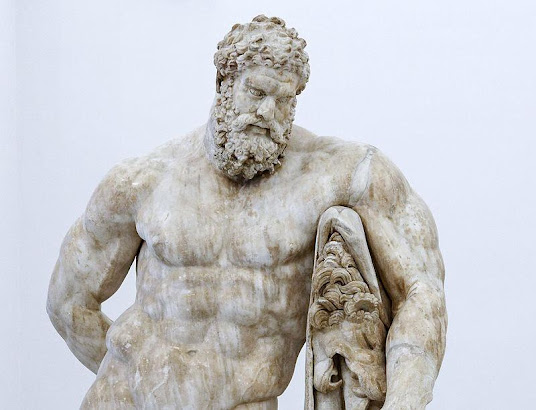Sermon Series (3 of 4) Meditations On Thrasymachus
Chapter I
When we think of nihilism, we often think of a pictureless void, no contents, no matter, just pure nothingness. But in metaphysical terms and ethical terms, nihilism can be power, with this power you can stand toe to toe with an adversary in war, whereas Machiavelli was more into pragmatic
injustice, Thrasymachus was about idealistic injustice. It seems, as if, moreover, that Thrasymachus was not only a descent of Nietzsche, Schopenhauer and Cioran, but also Machiavelli and Hobbes. Now the little we know about him is that moral nihilism entails that, 1.
everything is subjective and 2. do what thou wilt. However with Nietzsche's objective and active nihilism, in Thrasymachus we get actual nihilism, the reverse of the dialectic between Hegel and Gentile. Strange how that works. a pure form of sophistry that was boiled in the cauldrons of the Greek pantheon, he seemed to get a thrill out of his "two minutes hate". During the time of the
sophists, people were encouraged to jeer and cheer and clap during their orations, this of the little we know. But no one in the history of philosophy seems to take the Sophists as seriously as they should as they've been mostly relegated to the dustbins of ancient history after Socrates. One thing that they mostly believed was that education should be available to everyone, but at a price. What price is this? Because Thrasymachus was almost too steep a price to pay.
Chapter II:
The subject of justice, whether it be in the writings of Rousseau or Henry George always felt there was a need to be fair in society, whether ruled or ruler. Thrasymachus felt that, in that being a moral nihilist, that justice is only insoasmuch the powers that be practice justice just as much as those ruled beneath, and whichever party was stronger, should enact injustice to those who are ruled or are ruling. this plays a part in the whole scheme of revolutions and absolute kingship, the Cartesian dualism of society, the mind which rules, and the body which is ruled, if the body revolts against the mind and does it great injustice, you get a loudmouth lout, which is a character of many color revolutions, big or small, its the ugliness of the people which rear its head in the crowds described by Gustave Le Bon in his famous book on crowds, "Crowds, A Study Of The Popular Mind". Rarely is this wisdom found in crowds, for it sacrifices the ability to rule its functions and will defecate, urinate, and strike people. The average rioter, is by no means a genius, but rather ineffectual, in arrested development, a usually disaffected member of society, such as a minority or a vagrant teenager full of horomones. This person cannot function as a member of any society, and usually is relegated to places like prisons, mental institutions, or often end up dead. Because most steroid level athletes live short lives (like in professional wrestling) they can only serve as the court jester, never holding any position of power unless they number in the thousands. and when you have thousands, that society is likely to get overthrown unless the brain grows to control the society in which the body inhabits. When this force of "nihilistic will" is thrust upon the body, the body is punished, like in Catholic teaching, where the body suffers punishment based on its original sin. This sin is rebellion.
Chapter III:
Likewise if the brain is too powerful, you get a society akin to China, where the citizens have no rights to speak out, a weak body akin to an ant hill. Even though each worker ant does its function, it does it because the Brain can outsmart it, however, this makes the body susceptible to degradation. a weak body cannot fight injustice and if the power lies with the brain in terms of "nihilism", injustice is what it will continue to receive, as the body is conditioned to follow orders. Some may say mind over matter, and the mind can master the body, this can also be seen as another form of injustice, however the end result, it can whip the body into an athletic fervor and give it life, however much pain it may endure. And this is how the body regains conciousness, through a tightening of the muscles and the frenzy of constriction and relaxation, back and forth until the body is a solid war machine. Thats why, as with Schopenhauer and Berkeley, only mind matters, the body is secondary.
With that being said, we will move on to the subject of how Thrasymachus felt about dealings in business, voluntary actions, and exchanges of culture and possibly sex. Thrasymachus always felt that what you do with power is enact injustice, as his moral nihilism would direct this toward the subject, whether human or animal or plant-life. This is often seen in how Pol Pot directed the city denizens into a more brutal lifestyle, as he saw justice by enacting injustice to those who he saw working off the backs of local farmers, whereas the rural folks were treated with much better conditions. You can see this in power exchanges in business, hostile takeovers and monopoly economics. The man with the biggest testicular fortitude usually wins over others, thats why Adorno was wrong about authoritarian personalities. A "take charge" kind of attitude is usually admired by others and many will want to imitate that, justice or no justice. economic justice is one exception I will take, as the throes of capitalism have rendered a need for something that helps all of the citizens of a given society a fair shake, if it takes injustice to achieve this, then so be it. Christ suffered so we may reign in heaven.
Chapter IV:
In sex, Thrasymachus can be seen as purveyor of rape, of sexual aggression, an injustice placed upon the victim, someone who mimics DeSadean libertinism with his "actual nihilism". One who takes his manhood upon himself to decimate any woman beneath him, or man perhaps, as in Greek history, in the ancien regime, sexuality was more libertine and "free" however, this is the philosopher of the predator, the cunning linguist, the debater, the fighter, like in the wild west, where there were no laws and those who enforced them took it upon themselves to enforce anything to make a point. the grandfather of Machiavelli.
In short, Thrasymachus was someone who had a way of stirring the pot but as usual, was relegated to history as being a mere 'Sophist', he was someone however, with a keen eye you could see portions of philosophy to come and is often forgotten among the pre-Socratics. I attempted to bring Cartesian dualism, Hobbesian theories of justice, the solipsism of Schopenhauer and Berkeley out of his mind, and still managed to paint a fairly simple picture of someone who was seen as a mere instigator of Plato in his 'Republic' dialogue. To be quite honest, I don't understand how post-Hegelians like Nietzsche and Max Stirner were not influenced by his work and find it hard to believe they didn't place him among the 'state of man is war' Heraclitus, which by all means is also a respectable pre-Socratic. of course Thrasymachus deserves more than this but I don't think I could know much more than my limited sources. After all, its ancient history......



Comments
Post a Comment